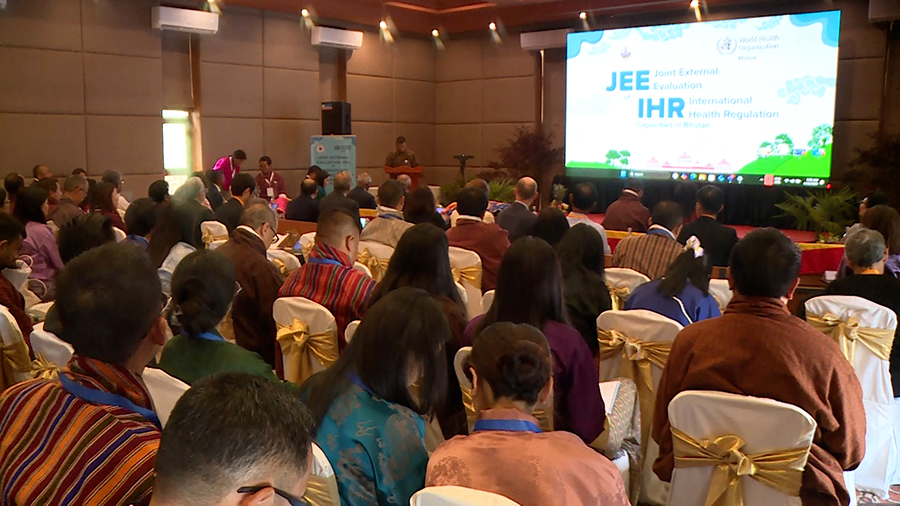 Is Bhutan ready for the next pandemic? That’s the question driving the country’s second Joint External Evaluation to assess how prepared Bhutan is for future health emergencies. Over the five-day assessment, more than 90 experts, including 21 from abroad, will examine Bhutan’s readiness to prevent, detect, and respond to public health threats. The first evaluation was conducted in 2017.
Is Bhutan ready for the next pandemic? That’s the question driving the country’s second Joint External Evaluation to assess how prepared Bhutan is for future health emergencies. Over the five-day assessment, more than 90 experts, including 21 from abroad, will examine Bhutan’s readiness to prevent, detect, and respond to public health threats. The first evaluation was conducted in 2017.
 During the evaluation, experts will review documents, meet stakeholders, and visit hospitals and health centres to see how systems work on the ground.
During the evaluation, experts will review documents, meet stakeholders, and visit hospitals and health centres to see how systems work on the ground.
Covering over 19 technical areas, the findings will be compiled into a scorecard, along with a new set of recommendations.
“After the evaluation is complete, we will receive recommendations on what else needs to be done. For that, we will develop the National Action Plan for Health Security after this. It will guide us on which areas to invest in and help us propose future projects to strengthen our health system,” said Ugyen Tshering, Lead, Joint External Evaluation Secretariat, MoH.
According to the health ministry, the first evaluation led to major changes. Since the first evaluation, Bhutan has strengthened surveillance, improved lab capacity and launched new training programmes.
New initiatives like the Basic Joint Field Epidemiology Training Programme were established. The country also enhanced the National Food Testing Lab, the Royal Centre for Disease Control and the National Centre for Animal Health.
Moreover, the National Health Emergency and Disaster Contingency Plan were recently updated.
Experts said that these proved critical when the pandemic hit.
“Antimicrobial resistance initiatives have been rolled out in many hospitals. We have also sent health workers abroad for master’s programmes and short-term training. Our lab capacities across hospitals have improved, and our surveillance systems are stronger now,” added Ugyen Tshering, Lead, Joint External Evaluation Secretariat, MoH.
Officials from the WHO praised Bhutan’s progress over the years.
“In many instances, we can clearly say that Bhutan is in a better place than before. In addition to pandemic preparedness, Bhutan has worked on other hazards like earthquakes and landslides. The country has intelligently developed its capacities to suit its context,” said Dr Reuben Samuel, Programme Area Manager, WHO Emergencies Programme, WHO SEARO.
The findings and recommendations will be shared on Friday, which will guide Bhutan’s next steps to strengthen its health system and prepare for future emergencies.
Namgay Dema
Edited by Sonam Pem









